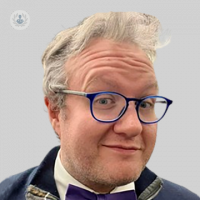The use of nutraceuticals in paediatric migraine
Autore:Nutraceuticals, natural products derived from food sources, are increasingly being explored as a complementary treatment for various medical conditions, including paediatric migraines. Unlike pharmaceutical drugs, nutraceuticals offer a more natural approach to managing health conditions, and they are often sought by parents as an alternative or in addition to traditional medications for their children.

What are nutraceuticals?
Nutraceuticals refer to supplements that include vitamins, minerals, herbal extracts, and other natural compounds that may offer therapeutic benefits. For paediatric migraine management, nutraceuticals such as magnesium, riboflavin (vitamin B2) and coenzyme Q10 (CoQ10), are some of the most commonly used. These substances are thought to play a role in improving cellular energy production, reducing oxidative stress and stabilising blood flow in the brain - all of which can help reduce migraine frequency and severity.
Why use nutraceuticals for paediatric migraines?
Migraine treatments for children are often limited, as many pharmaceutical options available for adults are not suitable for younger patients due to side effects or lack of research on their safety in children. Nutraceuticals offer a promising alternative, as they are generally well-tolerated and come with fewer side effects. Additionally, since migraines in children can impact school performance, social interactions and overall quality of life, parents may prefer a treatment that is perceived to be more natural and less invasive.
Common nutraceuticals used for paediatric migraines
- Magnesium: Magnesium deficiency is associated with increased migraine frequency. Supplementing with magnesium has been shown to reduce the number of migraine attacks in children. It can also help alleviate related symptoms, such as muscle tension.
- Riboflavin (Vitamin B2): Riboflavin is essential for cellular energy production. Studies have suggested that taking riboflavin may reduce the frequency and duration of migraines in children.
- Coenzyme Q10 (CoQ10): This antioxidant plays a key role in energy production within cells. Some evidence suggests that CoQ10 supplementation may reduce migraine frequency in children.
- Feverfew and butterbur: These herbal extracts have anti-inflammatory properties and have been studied in the context of migraine prevention. However, they should be used cautiously in children and only under the guidance of a healthcare provider, as certain preparations may have toxic effects.
How effective and safe are nutraceuticals?
While Nutraceuticals are generally considered safe and well-tolerated, it is essential to note that their efficacy in treating paediatric migraines is still an area of active research. Although many studies show positive results, nutraceuticals should not be seen as a cure for migraines. Instead, they may work best as part of a comprehensive treatment plan, which can include lifestyle changes, dietary adjustments, and possibly conventional medications.
Parents considering nutraceuticals for their child’s migraine should consult with a paediatric neurologist or headache specialist to determine the best treatment plan. Doses need to be appropriate for the child’s age and weight, and the healthcare provider can monitor for any potential interactions with other medications.
Nutraceuticals offer a promising complementary approach to managing paediatric migraines, especially for children who may not respond well to traditional medications. Supplements like magnesium, riboflavin, and CoQ10 have shown potential in reducing migraine frequency and severity, though more research is needed to confirm their long-term effectiveness. Parents should always consult with a healthcare professional before starting any nutraceutical treatment for their child.


